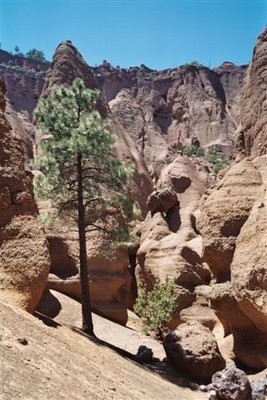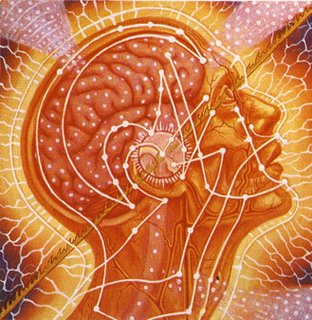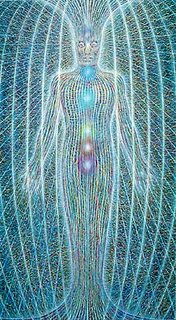And sugar-free banana cream pudding. Mmmmm . . . pudding.
What are you grateful for?
[This one has better rims, otherwise it's my car's twin.]
Offering multiple perspectives from many fields of human inquiry that may move all of us toward a more integrated understanding of who we are as conscious beings.
 post a new meditation each Saturday. I use "meditation" here in the philosophical sense of the word, meant to denote an open-ended, free-form exploration of an idea.]
post a new meditation each Saturday. I use "meditation" here in the philosophical sense of the word, meant to denote an open-ended, free-form exploration of an idea.]"One becomes two, two becomes three, and out of the third comes the one as the fourth."The quote refers to the alchemical process of extracting spirit from matter, but as the Emperor is the fourth card of the major arcana, we might look to this formula to explain a little of his significance.
~ Maria Prophetissa
 Which brings us to the card itself. One of the oldest variations of this card shows the Emperor casually sitting on his throne, holding a holy scepter, and with the eagle-emblazoned shield at his feet. This is the same shield we saw in the Empress card, thus connecting them as husband and wife. He clothes are colorful and represent the blending of different regions/peoples into his kingdom.
Which brings us to the card itself. One of the oldest variations of this card shows the Emperor casually sitting on his throne, holding a holy scepter, and with the eagle-emblazoned shield at his feet. This is the same shield we saw in the Empress card, thus connecting them as husband and wife. He clothes are colorful and represent the blending of different regions/peoples into his kingdom. The Osho Zen deck (their crooked scan, not mine) calls this card the Rebel, emphasizing its sense of mastery and self-possession. This "rebel" energy represents the harmonious balance of Red meme ego/power needs with Blue meme submission to a higher, inner truth.
The Osho Zen deck (their crooked scan, not mine) calls this card the Rebel, emphasizing its sense of mastery and self-possession. This "rebel" energy represents the harmonious balance of Red meme ego/power needs with Blue meme submission to a higher, inner truth.Whether he is wealthy or poor, the Rebel is really an emperor because he has broken the chains of society's repressive conditioning and opinions. He has formed himself by embracing all the colors of the rainbow, emerging from the dark and formless roots of his unconscious past and growing wings to fly into the sky. His very way of being is rebellious - not because he is fighting against anybody or anything, but because he has discovered his own true nature and is determined to live in accordance with it. The eagle is his spirit animal, a messenger between earth and sky.This take on the card is not too different than the Western version, but it feels more harmonious because it is less concerned with the outer manifestation of the archetypal energy and is more focused on how the archetype manifests at the psychological and spiritual levels.
 So the Emperor is the archytpal father. With the Empress as the mother, we have the Fool's parents identified in their best aspects. I mentioned that the Empress can have a negative manifestation as the Terrible Mother. The Emperor can also have a shadow side, most recognizable to us the tyrant or dictator.
So the Emperor is the archytpal father. With the Empress as the mother, we have the Fool's parents identified in their best aspects. I mentioned that the Empress can have a negative manifestation as the Terrible Mother. The Emperor can also have a shadow side, most recognizable to us the tyrant or dictator.At a time in the Church and in society when many people desire to experience God in a fresh new way, she contends, bringing the Dalai Lama before people who are already in a vulnerable state just paves the road for false doctrine and New Age spirituality to enter their lives.And the Catholics wonder why they are losing so many people in the Western nations. Buddhism is a New Age belief?! I guess that may be true if by New Age you mean 500 years before Jesus was even born.
But despite what Tibetan Buddhism teaches, Olive Tree Ministries' founder asserts, the Dalai Lama cannot offer anyone peace because there is no true peace apart from salvation in Jesus. "The intriguing thing," she says, "is the way people are flocking to want to hear this man. I guess I don't understand, other than that we're in such days of deception now, as the Bible predicted."
Markell suspects that the public's fascination with the Dalai Lama may be a mark of many people's desire to have a fresh encounter with God. "But this is a false god in a false religion, who has nothing to offer anybody," she emphasizes. "As a matter of fact, he's a Buddhist, and Buddhists don't even believe there's a God."
Although he is known for his tolerant, humane views, he is a surprisingly harsh critic of homosexuality. If you are a Buddhist, he says, it is wrong. "Full stop.
No way round it.
"A gay couple came to see me, seeking my support and blessing. I had to explain our teachings. Another lady introduced another woman as her wife - astonishing. It is the same with a husband and wife using certain sexual practices. Using the other two holes is wrong."
At this point, he looks across at his interpreter - who seems mainly redundant - to check that he has been using the right English words to discuss this delicate matter. The interpreter gives a barely perceptible nod.
"A Western friend asked me what harm could there be between consenting adults having oral sex, if they enjoyed it," the Dalai Lama continues, warming to his theme. "But the purpose of sex is reproduction, according to Buddhism. The other holes don't create life. I don't mind - but I can't condone this way of life."



A very wise person once told me this: "You are right now exactly who you need to be, where you need to be, and who you are is exactly what the Universe wants you to be."He then posted about the comment I left, writing about the difference between who he is and who he wants to be -- and whether or not that is a reconcilable contradiction.
 At this moment in time -- right now -- I can wish to be different than I am, but all the wishing in the world -- and the anger, frustration, fear, sadness, joy, and so on -- can do nothing to change the fact that right now -- at this moment -- I am who I am.
At this moment in time -- right now -- I can wish to be different than I am, but all the wishing in the world -- and the anger, frustration, fear, sadness, joy, and so on -- can do nothing to change the fact that right now -- at this moment -- I am who I am.Habit, laziness, and fear conspire to keep us comfortably within the familiar.Ah, the story of my life.
~ Jane Hirshfield

Some biography from the Academy of American Poets:What the Orphan Inherits
LanguageI dreamed I was digging your grave
with my bare hands. I touched your face
and skin fell in thin strips to the grounduntil only your tongue remained whole.
I hung it to smoke with the deer
for seven days. It tasted thick and greasysinew gripped my tongue tight. I rose
to walk naked through the fire. I spoke
English. I was not consumed.
NamesI do not have an Indian name.
The wind never spoke to my mother
when I was born. My heart was hiddenbeneath the shells of walnuts switched
back and forth. I have to cheat to feel
the beating of drums in my chest.
Alcohol"For bringing us the horse
we could almost forgive you
for bringing us whisky."
TimeWe measure time leaning
out car windows shattering
beer bottles off road signs.
TraditionIndian boys
sinewy and doe-eyed
frozen in headlights.
Sherman Alexie, a Spokane/Coeur d'Alene Indian, was born in 1966 on the Spokane Indian Reservation in Wellpinit, Washington. He received his B.A. in American studies from Washington State University in Pullman. His books of poetry include One Stick Song (Hanging Loose, 2000), The Man Who Loves Salmon (1998), The Summer of Black Widows (1996), Water Flowing Home (1995), Old Shirts & New Skins (1993), First Indian on the Moon (1993), I Would Steal Horses (1992), and The Business of Fancydancing (1992). He is also the author of several novels and collections of short fiction including Ten Little Indians (Grove Press, 2003); The Toughest Indian in the World (2000); Indian Killer (1996); Reservation Blues (1994), which won the Before Columbus Foundation's American Book Award; and The Lone Ranger and Tonto Fistfight in Heaven (1993), which received a Hemingway Foundation/PEN Award. Among his other honors and awards are poetry fellowships from the Washington State Arts Commission and the National Endowment for the Arts and a Lila Wallace-Reader's Digest Writers' Award.I first met Sherman Alexie at a poetry reading in Seattle, in 1997. At the time, he was the rising star of the Seattle literary scene, soon to break at the national level with a rave review of his poetry in New York Times Book Review.
Alexie and Chris Eyre wrote the screenplay for the movie Smoke Signals, which was based on Alexie's short story "This is What it Means to Say Phoenix, Arizona." The movie won two awards at the Sundance Film Festival in 1998 and was released internationally by Miramax Films. He is also a three-time world heavyweight poetry slam champion. Alexie lives with his wife and son in Seattle, Washington.
Little Big Man
I got eyes, Jack, that can see
an ant moving along the horizon
can pull four bottles shattering
down from the sky and recognize
the eyes of a blind man
who told me once, The future is yours
and I believed him until he left me
without a campfire, without an axe
to chop down a tree and build myself
a chair, house, cold drink.
Jack, how much pain is there
in the world? I think there's only one kind
and we all keep moving around it in circles
like clumsy pioneers, over the same ground
until the landscape becomes so familiar
we settle down and call it home.
Seems like everybody wants to be an Indian.
Why should you be any different, Jack?
Still, when you rub the red dirt off your pale nose
your little insanities vanish.
Listen: the proof is glass.
When an Indian looks through a window
it's like a mirror. When the Indian looks
into a mirror, it's like a window.
I know you have dreams, Jack. We all want
an acre of land, love, and a full stomach.
Without that, we couldn't listen to the wind
without anger. But I've been sitting in a cold room
watching stars through a hole in the roof.
That bright star to the north doesn't have a name
I know. Like everything else, it will break my heart.
The Exaggeration of Despair
I open the door
(this Indian girl writes that her brother tried to hang himself
with a belt just two weeks after her other brother did hang himself
and this Indian man tells us that back in boarding school,
five priests took him into a back room and raped him repeatedly
and this homeless Indian woman begs for quarters, and when I ask
her about her tribe, she says she's horny and bends over in front of me
and this homeless Indian man is the uncle of an Indian man
who writes for a large metropolitan newspaper, and so now I know them both
and this Indian child cries when he sits to eat at our table
because he had never known his own family to sit at the same table
and this Indian woman was born to an Indian woman
who sold her for a six-pack and a carton of cigarettes
and this Indian poet shivers beneath the freeway
and begs for enough quarters to buy pencil and paper
and this fancydancer passes out at the powwow
and wakes up naked, with no memory of the evening, all of his regalia gone)
I open the door
(and this is my sister, who waits years for a dead eagle from the Park Service, receives it
and stores it with our cousins, who then tell her it has disappeared
though the feathers reappear in the regalia of another cousin
who is dancing for the very first time
and this is my father, whose own father died on Okinawa, shot
by a Japanese soldier who must have looked so much like him
and this is my father, whose mother died of tuberculosis
not long after he was born, and so my father must hear coughing ghosts
and this is my grandmother who saw, before the white men came,
three ravens with white necks, and knew our God was going to change)
I open the door
and invite the wind inside.